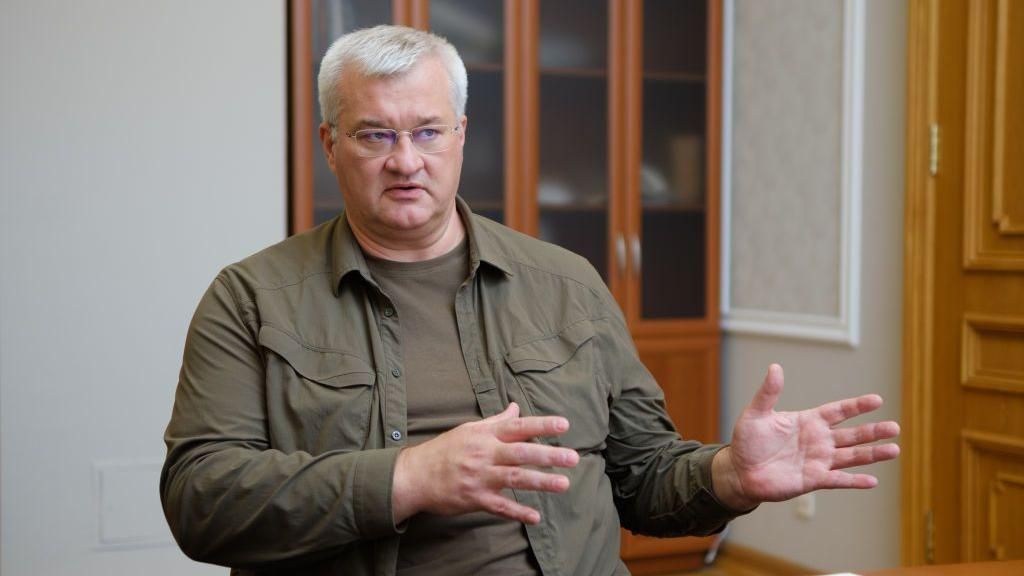Ukraine’s Major Cabinet Overhaul: Zelensky Reshuffles Government Amid War
3 min read

In a significant political move, Ukraine’s parliament has approved a major reshuffle of President Volodymyr Zelensky’s cabinet, marking the largest such overhaul since Russia’s full-scale invasion began in February 2022. This restructuring, which saw nine new ministers appointed, includes the elevation of Andrii Sybiha, a 49-year-old former diplomat and ex-adviser to Zelensky, to the position of foreign minister.
The reshuffle had been anticipated for several months, as many of the president’s cabinet members had been serving in an acting capacity due to a series of resignations and dismissals. Critics argue that Zelensky is consolidating power within his office, as several of the new appointees were previously his advisers. Supporters counter that centralizing political power is crucial for effective wartime leadership.
Initially, Zelensky retained senior political and military figures during the early months of the conflict. However, in May of the previous year, he dismissed Defense Minister Oleksii Reznikov amid corruption scandals. Earlier this year, Kyiv’s top military commander, Valerii Zaluzhnyi, was also relieved of his duties.
In his nightly address from Kyiv, President Zelensky explained the rationale behind the cabinet changes, emphasizing a need for a more proactive government in securing support from Western allies. Despite the shake-up, Sybiha’s appointment as foreign minister is not expected to lead to major changes in Ukraine’s foreign policy, as Zelensky and his office have largely overseen international relations from the presidential palace.
Sybiha’s appointment is seen by some as aligning with Andriy Yermak, the increasingly influential presidential chief of staff, who reportedly had conflicts with the outgoing foreign minister, Dmytro Kuleba. Alongside Sybiha, Oleksiy Kuleba, another key adviser to the president, has been named deputy prime minister in charge of reconstruction, regions, and infrastructure. Previously, Kuleba was the deputy head of the presidential office.
Other notable changes include the reappointment of 38-year-old Olha Stefanyshyna as deputy prime minister responsible for European integration, now also overseeing the justice portfolio. This move reflects Ukraine’s push to advance its bid for EU membership. Stefanyshyna informed MPs that “hundreds and thousands” of legal reforms are required for Kyiv to achieve EU accession.
Additionally, Herman Smetanin, aged 32, has been appointed as the minister of strategic industries, focusing on domestic arms production. This role is crucial as Ukraine continues to face intense Russian attacks in the eastern Donetsk region and pushes into Russia’s Kursk border province.
MP Inna Sovsun supported the reshuffle, stating that it brings “new people and new ideas” into the government. Conversely, former Zelensky ally and opposition MP Dmytro Razumkov criticized the changes, suggesting they would have minimal impact on decision-making. Razumkov claimed that the Cabinet of Ministers has been ineffective for some time.
Opposition MP Iryna Gerashchenko accused Zelensky of disregarding parliamentary traditions by not personally attending the votes for the new ministers. She argued that key appointments, such as the foreign minister, have traditionally been the president’s prerogative and that past presidents have always represented their candidates.
In response, Oleksandr Merezhko, a lawmaker with Zelensky’s Servant of the People Party, dismissed these concerns. He pointed out that Zelensky has consistently acted to remove underperforming ministers, citing the early dismissal of his first Prime Minister, Oleksiy Honcharuk, as evidence of Zelensky’s focus on results.
Prime Minister Denys Shmyhal welcomed the new appointments, acknowledging the challenging tasks ahead but expressing confidence in their ability to advance the state’s strategic goals. Under martial law, Zelensky has substantial executive powers, and with elections suspended during the ongoing war, and the Servant of the People Party maintaining a parliamentary majority, there is limited oversight of his administration.
Despite fears of excessive centralization, Merezhko argued that during wartime, some concentration of power is necessary. He emphasized that the state is effectively functioning as a unified entity under the wartime leadership of Zelensky, who must balance the need for strong central control with the preservation of democratic principles.